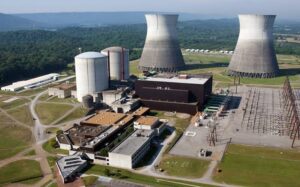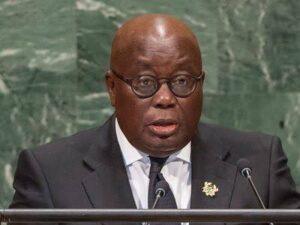Ghana finds itself at the center of a global competition as the United States, Russia, China, France, and South Korea vie to construct the country’s first nuclear power plant. This development marks a significant milestone in Ghana’s efforts to diversify its energy portfolio and enhance electricity access.
In pursuit of a sustainable and low-carbon energy solution, Ghana is exploring nuclear power to complement its existing mix of hydro, thermal, and renewable energy sources. The winner of this high-stakes bidding process will be announced at the end of 2024 by outgoing President Nana Akufo-Addo, as confirmed by Stephen Yamoah, executive director of Nuclear Power Ghana, the organization overseeing the project.
Despite the ambitious plans, Yamoah acknowledged that the initial target to have the plant operational by 2030 will be missed. “We still haven’t settled on a vendor,” he stated, indicating that construction is now slated to begin in 2026 and is expected to take five years to complete.
Ghana’s aspirations for nuclear energy are part of a broader strategy to ensure a reliable and diverse energy supply. Dr. Robert Sogbadzie, deputy director of power at the Ministry of Energy, outlined the country’s projections: nuclear energy is anticipated to constitute 5% of Ghana’s energy mix by 2030, with a goal of increasing this share to 35% by 2070.
“Every country is coming in based on its proposal,” Dr. Sogbadzie emphasized, noting that the selection process will hinge on the cost and technology offered by the competing nations, rather than purely political considerations. This pragmatic approach underscores Ghana’s commitment to finding the most efficient and sustainable solution for its energy needs.
Also, read; 102-Year-Old Black Grandma From Virginia Makes History, Finally Earns College Degree
The nuclear power plant project is expected to significantly bolster the energy infrastructure of the country, providing a stable and sustainable power supply that supports economic growth and development. As the bidding process unfolds, the world watches closely, aware that the outcome will not only impact Ghana but also signify broader shifts in global energy dynamics. 
Ghana’s move towards nuclear energy reflects a growing trend among African nations seeking to enhance their energy security and reduce carbon emissions. As countries across the continent grapple with increasing energy demands, nuclear power presents a viable alternative that aligns with global sustainability goals.
The forthcoming decision on the west African country’s nuclear power plant vendor will mark a pivotal moment in the country’s energy history, setting the stage for a new era of innovation and international collaboration in the pursuit of clean energy solutions.
